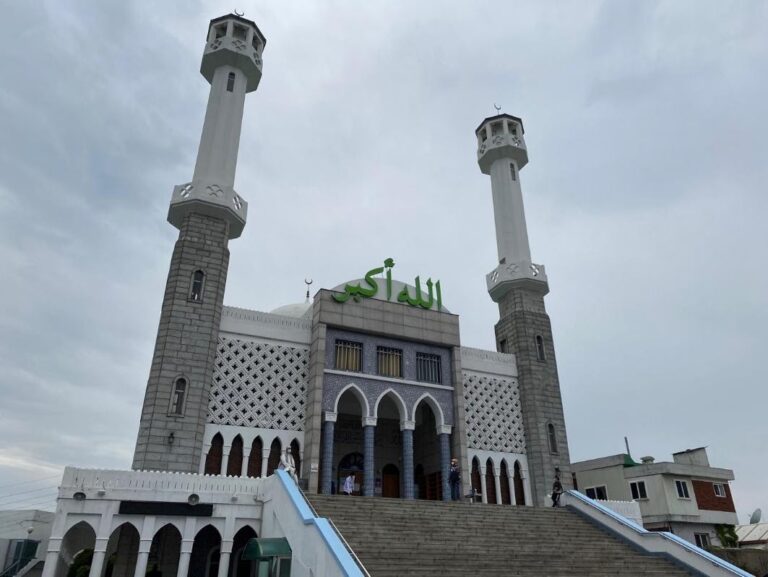Due to the impact of globalization, South Korea is one of the countries that embraced multi-cultures. Although it is known for a fact that Korea is a comparatively more homogeneous nation than the United States or other European nations, its attempt to advocate multicultural communities is evident in several means and activities.
The spread of varying cultures and the formation of communities can be noticeably witnessed at Itaewon. International restaurants with authentic cuisines and dishes, along with global food markets characterize the streets of Itaewon. For that reason, other Korean stores are targeted to attract tourists and foreigners living in Korea. People would encounter countless restaurants with haleem indications on their signs. It is not just the restaurants and stores that distinguish Itaewon from portraying cultural diversity, but it is where the Islam temple locates. The Islam template at Itaewon is the first and the biggest temple for Muslims in Korea. To add on, the annually held Itaewon global village festival actively demonstrates and advocates different global foods, though the recent festival had been canceled due to the pandemic. For these characteristics, Itaewon serves as a model representation to introduce cultural diversity to Korea.
To support growing diversity and international families, a government-funded portal, danuri, offers help for the families to adjust to Korea and connects them with foreign support organizations. The organizations provide care for education, counseling, and abuse or violence. For instance, education includes teaching basic Korean, Korean cultures, and the usage of the internet and technology to adequately habituate.
Despite the effort to promote diversity, there exist forms of racial prejudices towards foreigners living in Korea. On the report of a survey in 2019, “ 68.4% of the respondents said they had experienced racial discrimination”. To add on, 58% of the respondents reported verbal disparagement, and 46.9% of invasion of privacy, 43.1% of receiving of “unpleasant way of looking”, 37.4% of “facing disadvantages at the workplace”, 28.9% of refusal of job, and 7% of sexual harassment and assault (Ock). At varying levels of society, regardless of which country, racial discrimination exists, and I believe it is a global issue that all countries need to resolve altogether.
South Korea being a culturally clustered nation is developing to become a diverse nation. And its support and progress to such a goal is evident in multicultural restaurants, communities, and festivals in Korea, along with the organizations’ assistance. In the progress of making Korea diverse, it is significant to enforce racial equality, and so do other countries.


